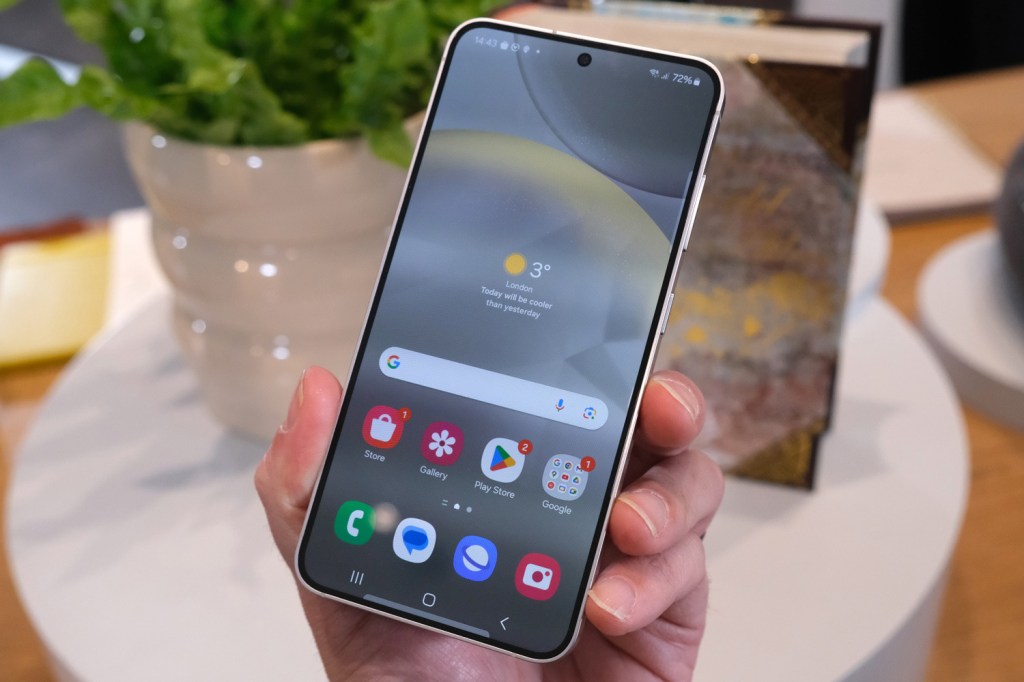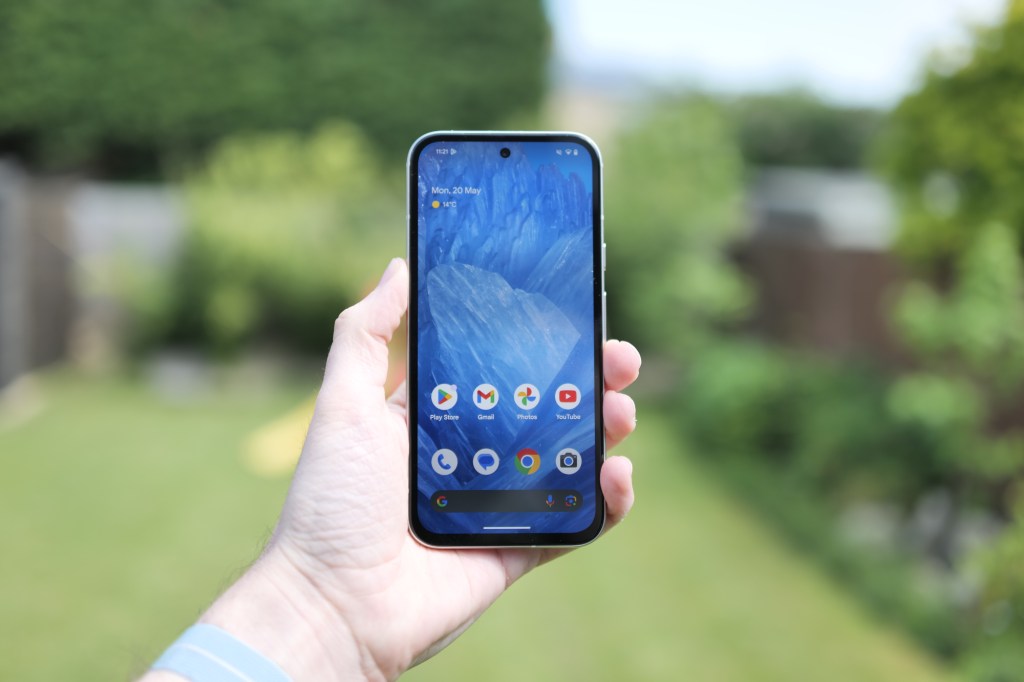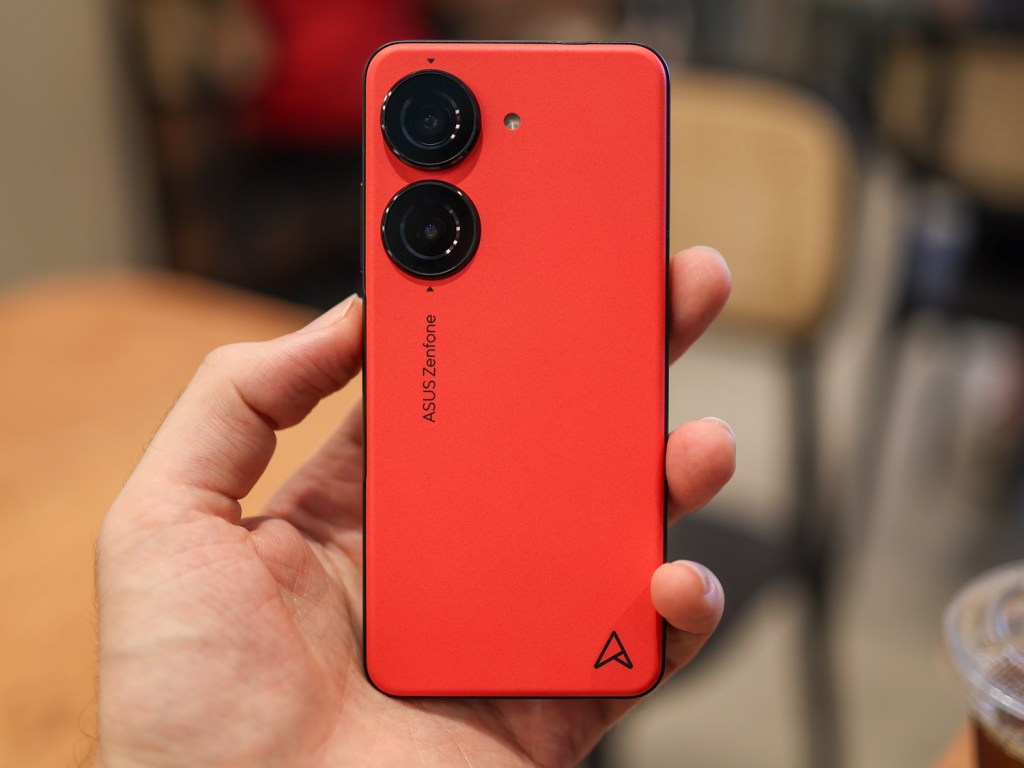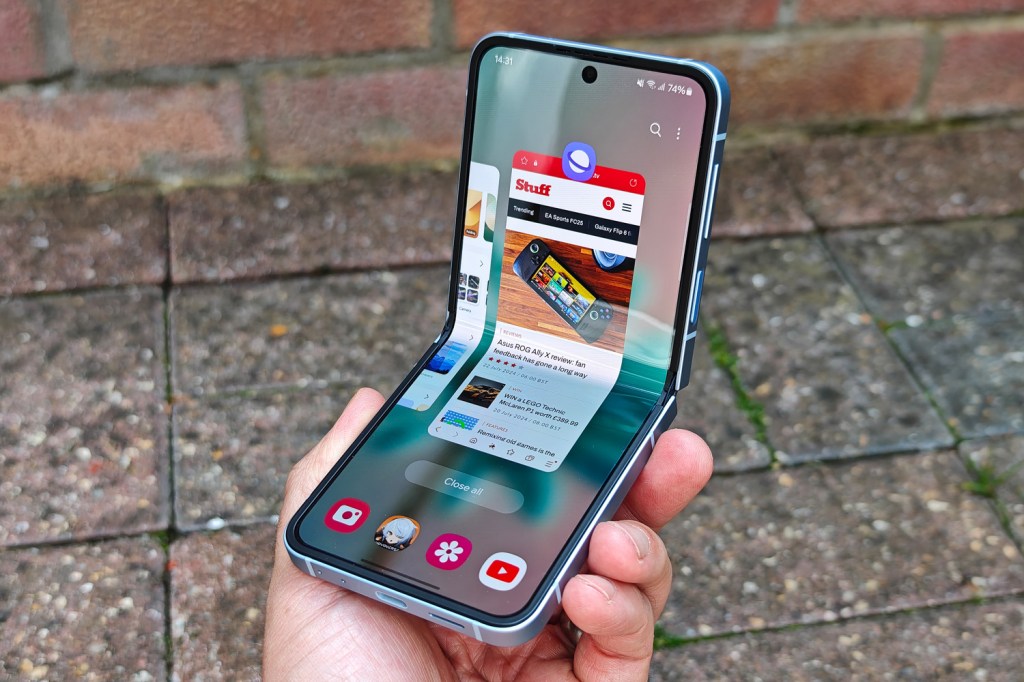Compact is a relative term these days: smartphones that were once considered pocket-filling phablets are now par for the course. But if you want a mobile that’s easier to tote than the models on our overall best smartphones list, what’s the best small phone you can buy?
There’s no escaping that handset dimensions have expanded considerably over the last decade – but some use frame-filling displays to maximise every inch of screen space, making them more manageable than your average modern flagship. Whether you’ve got smaller paws or simply want a smartphone that doesn’t demand quite so much pocket space, you should find your ideal small phone below. Oh, and don’t forget to check out our guide to the best upcoming phones, too.
Why you can trust Stuff: Our team of experts rigorously test each product and provide honest, unbiased reviews to help you make informed decisions. For more details, read how we test and rate products.
Quick list: what’s the best small phone?
The best small phones you can buy today:


1. Samsung Galaxy S24
| Samsung Galaxy S24 specs | |
|---|---|
| Display | 6.2in, 2340×1080, 1-120Hz AMOLED |
| Processor | Exynos 2400 (Europe) / Qualcomm Snapdragon 8 Gen 3 (USA) |
| RAM | 8GB |
| Storage | 128/256GB |
| Software | Android 14 w/ OneUI |
| Cameras | 50MP+10MP+12MP rear 12MP front |
| Battery | 4000mAh |
| Dimensions | 147x71x7.6mm, 167g |
First things first: yes, the Samsung Galaxy S24 is a fair bit bigger than our previous top small smartphone the Apple iPhone 13 Mini. But seeing how Apple threw in the towel on the Mini line, and remaining stock has now all but dried up, it’s time to look elsewhere for a compact fix.
Samsung has squeezed a 6.2in screen into a form factor no larger than last year’s Galaxy S23, which was already one of the smallest flagship phones around. More importantly, it hasn’t compromised on the hardware front. A top-tier chipset, larger battery and a refined design make it a consummate all-rounder, while the super-bright LTPO display looks smooth and colourful in all lighting conditions.
As is the case just about everywhere these days, camera hardware takes a back seat to its S24 Ultra bigger brother, and image quality in general can’t keep up with the very best smartphone snappers – but the S24 still takes fantastic photos both during the day and at night. It also has some of the most advanced (and useful) on-device AI we’ve seen to date. As a complete package, little else comes close with such diddy dimensions.


2. Google Pixel 8a
| Google Pixel 8a specs | |
|---|---|
| Display | 6.1in 1080 x 2400 OLED up to 120 Hz |
| Processor | Google Tensor G3 |
| RAM | 8GB |
| Storage | 1128 GB/256 GB |
| Software | Android 13 |
| Cameras | 64MP, f/1.9 main w/ OIS + 13MP,f/2.2 ultrawide rear 13MP, f/2.2 front |
| Battery | 4,492 mAh |
| Dimensions | 152.1 x 72.7 x 8.9mm, 188 g |
Google’s Pixel 8a is a superb, well-rounded phone that continues the Pixel range’s track record for killer cameras – while also borrowing a few high-end features from its bigger brothers. It may not be quite the value champ that its predecessors were, but it can safely compete with flagship rivals that cost as much as twice the price. You’re getting a hell of a lot of camera quality for your money here.
You can get other Android handsets for less cash, ones that have nippier charging. Even so, this is a choice that’s hard to argue against, especially if you’re perfectly comfortable darting your digits around its 6.1in screen.


3. Asus Zenfone 10
| Asus Zenfone 10 specs | |
|---|---|
| Display | 5.9in 2640×1080 AMOLED |
| Processor | Qualcomm Snapdragon 8 Gen 2 |
| RAM | 8/16GB |
| Storage | 256/512GB |
| Software | Android 13 |
| Cameras | 50+13MP rear, 32MP front |
| Battery | 4300mAh |
| Dimensions | 147x68x9.4 mm, 172g |
Wait, isn’t there a Zenfone 11 out now? Yes and no – Asus decided to introduce its latest phone line with an Ultra variant, complete with a huge display and equally beefy battery. It’s unclear if there’ll be a ‘regular’ version that follows more closely in the footsteps of previous generations; we won’t know until July 2024, when the Zenfone 10 reaches its first birthday.
Until then, the Zenfone 10 remains on sale, and continues to squeeze superlative performance into a pocket-friendly package.
Chunky at 9.1mm, it sits comfortably in the hand, with a synthetic layer giving the plastic back something of a premium feel. The 5.9in display fills the entire front of the phone, with a punchy OLED panel, adaptive 120Hz refresh rate, HDR10+ credentials and fantastic colour accuracy.
Two sizeable stabilised eyes reside on the rear: a 50MP Sony sensor and a 13MP ultra-wide. Results are reliably fine, occasionally good but never excellent, with auto processing not doing justice to the hardware. That said, 8K video is brilliant at 30fps.
Generally deployed in gaming handsets, a Snapdragon 8 Gen 2 chip makes the Zenfone 10 something of a small superphone. During our time with the device, there were no bugs, crashes or overheating issues. Wired charging rates are capped at 30W, but the 4300mAh battery can comfortably make it through the day – provided you limit 5G downloads. It also gains wireless charging, something missing from the outgoing Zenfone 9.


4. Samsung Galaxy Z Flip 6
| Samsung Galaxy Z Flip 6 specs | |
|---|---|
| Display | 6.7in, 2640×1080 1-120Hz AMOLED (inner) 3.4in, 720×748 AMOLED (cover) |
| Processor | Qualcomm Snapdragon 8 Gen 3 for Galaxy |
| RAM | 12GB |
| Storage | 256/512GB |
| Software | Android 14 w/ OneUI |
| Cameras | 50MP + 12MP + 10MP |
| Battery | 4000mAh w/ 25W Wired, 15W wireless charging |
| Dimensions | 72x85x14.9mm (folded), 72x165x6.9mm (unfolded), 187g |
The Samsung Galaxy Z Flip6 takes the foldable game up a notch, offering minor yet impactful upgrades that make it almost on par with the Galaxy S24. While it doesn’t flip the script, it doesn’t need to, as Samsung refines an already impressive design. We love the new 50MP lead camera sensor, which has been long overdue, and the 4000mAh battery finally delivers all-day performance. The Snapdragon 8 Gen 3 chip ensures top-tier speed, keeping Samsung ahead in AI and power efficiency.
That said, it’s not perfect. The cover screen, while still vibrant, remains focused on widgets, leaving us yearning for full app functionality—something Motorola’s Razr 50 Ultra already nails. Plus, with competition offering similar features at a lower price, it’s clear Samsung’s Flip6 comes with a premium.
For those in Samsung’s foldable camp, though, the Flip6 represents a significant leap forward, offering flagship performance in a foldable form factor. Its reinforced hinge, improved matte finish, and refined design mean it feels better in the hand, and its camera now stands toe-to-toe with non-folding rivals. For foldable newcomers, this is the device to consider.


5. Sony Xperia 5 V
| Sony Xperia 5 V specs | |
|---|---|
| Display | 6.1in 2560×1080 AMOLED |
| Processor | Qualcomm Snapdragon 8 Gen 2 |
| RAM | 8GB |
| Storage | 128GB (expandable) |
| Software | Android 13 |
| Cameras | 48+12MP rear, 12MP front |
| Battery | 5000mAh |
| Dimensions | 154x68x8.6mm, 183g |
Despite having a 6.1in screen (making it one of the larger displays on our compact handset list), the tried and tested unique Sony aspect ratio means that the Xperia 5 V is actually narrower than most of the competition. This makes it a pleasure to use for activities like one-thumb typing and scrolling. The downside, of course, is that you’ll have to reach further to drag down the top notification bar, but that doesn’t detract too much from the overall compact feel on offer.
Size aside, there’s a very capable dual-camera system on the rear, though as is the case with most Xperia handsets, you’ll get the best results if you’re tweaking things manually in pro mode. The Snapdragon 8 Gen 2 processor is perfectly potent, and it manages to surpass quite a few rivals in the longevity department too, though the 30W wired charging speed is nothing to write home about.
As with other Xperia handsets, the 5 V is more of a niche consideration, but definitely worth exploring, especially if you’re already an Xperia fan.
How to choose the best small phones
When selecting a small smartphone, the screen size is, of course, the most important factor. Ideally, you want a device with a screen size of around 5.5 inches or smaller to ensure it remains compact and easy to handle. However, it’s essential not to compromise on screen resolution. You’ll want at least Full HD resolution (1080p), which is fine for most tasks, while higher will give you sharper text, videos and images.
The performance of a small smartphone should not be overlooked. Even though the device is compact, it should still be capable of handling everyday tasks smoothly. Look for phones equipped with recent and efficient processors.
Now, it’s worth noting that battery life in small smartphones can be challenging due to the limited space for larger batteries. However, modern advancements in power management have made it possible for smaller devices to maintain decent battery life. Aim for at least 2500 mAh, as this is generally sufficient for a full day of moderate use. Also, read our reviews to make sure the handsets offer efficient power management.
Finally, a small smartphone should not only be compact but also feel premium and durable in hand. High-quality materials like aluminium or glass not only enhance the phone’s looks but also contribute to its durability.
